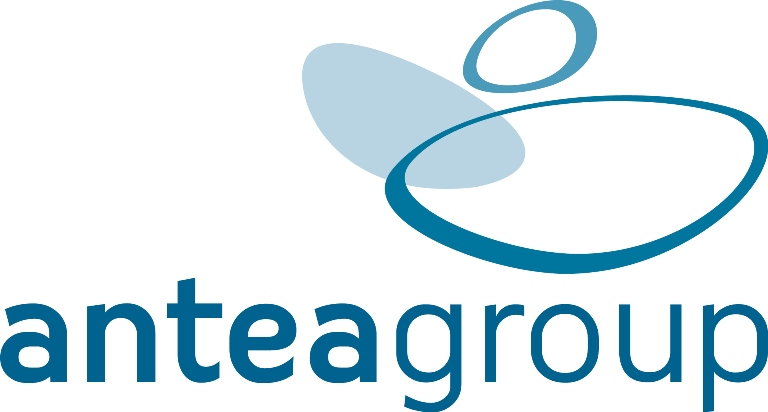Why Water Is a Critical Business Metric Across All Industries
Written by Celine Morris

In recent years, sustainability reporting has become a standard practice for many companies seeking to demonstrate their environmental, social, and governance (ESG) performance. One key aspect of these reports is the identification of material topics.
Water is often recognized as a material topic for industries such as agriculture, manufacturing, and utilities due to the water intensive and water dependent nature of their operations. However, for some industries, particularly software companies, water may not be identified as a material topic in their materiality assessments. This is particularly the case when only financial materiality of the topic is assessed. Despite the absence, there are compelling reasons why all companies, regardless of industry, should care about water as a critical business metric.
Recognizing Water as a Growing Business Risk
Companies that fail to address water issues in the watersheds where they operate are increasingly at risk. The World Economic Forum's 2022 Global Risk Report lists natural resource and water crises among the top 10 severe global risks in the next 10 years. Additionally, the World Resources Institute (WRI) has predicted a 56% gap between global water supply and demand by 2030, if there is no change in the current water management practices globally. This increasing pressure on governments and companies to reduce water consumption due to scarcity threatens efforts to ensure universal access to sustainable water and sanitation for all.
Businesses depend on water for their daily operations, and as water scarcity increases, it can disrupt operations, raise costs, and create regulatory and reputational risks. These more immediate challenges contrast with long-term issues like climate change, making water scarcity a pressing concern. Water scarcity affects businesses regardless of their water usage levels, as it is essential for various operations like sanitation, cleaning, and cooling. Thus, addressing water scarcity is vital for ensuring the sustainability and resilience of businesses in the face of growing water-related challenges.
Addressing the Gap Between Ambition and Action
An Ecolab-GreenBiz survey found that for 74% of respondents, water is an increasing priority, and 59% agreed that water is a growing business risk. However, there is a gap between ambition and action: 44% of responding companies admit to having no plan in place to achieve water goals. Understanding water stewardship activities material to business operations is crucial, as a combination of company activities and basin situations can contribute to physical, reputational, and regulatory risks.
To bridge this gap, companies must take proactive steps to assess the importance of water to their business. The CEO Water Mandate provides guidance on how companies can determine which water-related topics are material to their business. The process involves identifying a list of relevant water-related topics, prioritizing them based on the significance of the risks, opportunities, and impacts they pose, and validating the outcomes of the materiality assessment. This three-step process helps companies select the topics that should be included in their water reporting, ensuring that they take meaningful action towards water stewardship.
Understanding Materiality in Water Reporting
In sustainability reporting, materiality is commonly thought of as a threshold at which certain sustainability topics become relevant enough for a company to report on. The Global Reporting Initiative (GRI) defines material topics as those that “represent the organization’s most significant impacts on the economy, environment, and people, including impacts on their human rights.”
Water reporting involves companies disclosing information about their water-related performance, risks, and opportunities. While some companies may not identify water as a material topic in their reporting, it is still crucial for them to prioritize water stewardship. The CEO Water Mandate's guidance on materiality emphasizes the importance of considering water-related topics that may not seem significant individually but can collectively impact a company's operations and stakeholders. By evaluating and reporting on a broader range of water-related issues, companies can enhance their understanding of water risks and opportunities, improve stakeholder engagement, and contribute to sustainable water management efforts.
Materiality and relevance are often used interchangeably, but they are two distinct terms whose subtle differences are critical to companies seeking to define which content to report. Relevant topics are those that may reasonably be considered important for reflecting the company’s economic, environmental, and social impacts or influencing the decisions of stakeholders. All material topics are relevant, but not all relevant topics are material. They therefore potentially, but not necessarily, merit disclosure.
Advantages of Double Materiality in Water Reporting
The approach used to identify material topics can greatly influence the final topic selection. Double materiality, for instance, considers both financial and sustainability impacts for strategic decisions and subsequent reporting. While financial materiality focuses on the impacts of sustainability issues on a company's financial performance, double materiality expands this perspective to include the impacts of the company's activities on the environment and society.
This approach is particularly advantageous when considering water as a topic, as it allows companies to not only assess the financial risks and opportunities related to water but also understand the broader environmental and social implications of their water use. For example, while a company's direct water use may not seem financially material on its own, the risks associated with water scarcity or pollution in its supply chain can have far-reaching financial consequences. By adopting a double materiality approach, companies can better understand and manage these risks, leading to more sustainable and resilient business practices.
By considering both financial and sustainability impacts, companies can conduct more comprehensive risk assessments, engage with a wider range of stakeholders, focus on long-term sustainability, and enhance reporting transparency. This can ultimately lead to more effective water management practices and greater resilience to water-related challenges.
Conclusion: Embracing Water Stewardship Beyond Materiality
In conclusion, while water may not be recognized as a material topic for some companies, it is still relevant due to its significant potential impact on business continuity, brand image, and stakeholder perceptions. By understanding the broader context of water-related issues and their potential implications, companies can better manage risks and seize opportunities related to water stewardship.
Do you need help with your organization’s water stewardship goals? Reach out to our team of Water Stewardship experts today!
About Antea Group
Antea®Group is an environment, health, safety, and sustainability consulting firm. By combining strategic thinking with technical expertise, we do more than effectively solve client challenges; we deliver sustainable results for a better future. We work in partnership with and advise many of the world’s most sustainable companies to address ESG-business challenges in a way that fits their pace and unique objectives. Our consultants equip organizations to better understand threats, capture opportunities and find their position of strength. Lastly, we maintain a global perspective on ESG issues through not only our work with multinational clients, but also through our sister organizations in Europe, Asia, and Latin America and as a founding member of the Inogen Alliance. Learn more at us.anteagroup.com.

